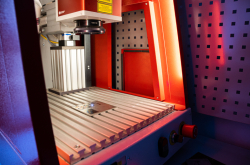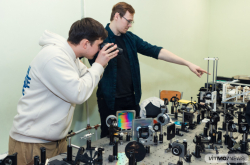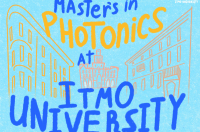We use photonics devices in our everyday life. They are implemented in lasers and liquid-crystal displays, light-emitting diodes and luminescent lamps, photo cameras, scanners, and projectors. In order to create devices with unique properties, scientists work on synthesizing new materials. They develop Li-Fi technology, quantum computers, and complex hardware for space research. Doctors use laser surgery for vision correction and other operations. Researchers look into ways for treating cancer and Alzheimer’s disease using photonics tools.
“While information technologies is the industry of the present, photonics is the industry of the future. The global photonics market currently amounts to $550 billion, and is projected to reach approximately $800 billion by 2023. This drives the need for qualified photonics specialists all over the world, including in Russia,” comments Vladislav Bougrov, head of ITMO’s School of Photonics.
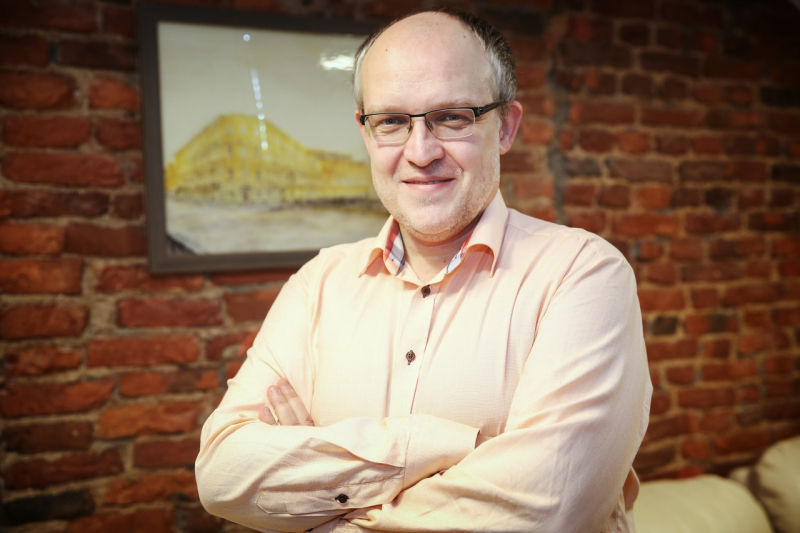
Photonics is an interdisciplinary field. It combines physics, engineering, materials science, medicine, chemistry, programming and design. School of Photonics’ Master’s programs cover both fundamental and applied spheres: nanophotonics, quantum communications and materials, optoelectronics, laser and LED technologies, applied optics, and space engineering.
“Society’s development is impossible without the integration of knowledge and methods of different disciplines, in other words, interdisciplinarity,” believes Maya Uspenskaya, professor at the Faculty of Applied Optics. “Specialists who completed our program Bioengineering and Biotechnical Systems possess wide-ranging knowledge in medicine, chemistry, biology, and optical systems. Another of our programs, Bioeconomics and Resource Management, focuses on energy- and resource-efficient technologies. These are used in chemical, oil and gas, medical, and food industries. Each program includes several specializations that give students the opportunity to delve into the topics that interest them most.”
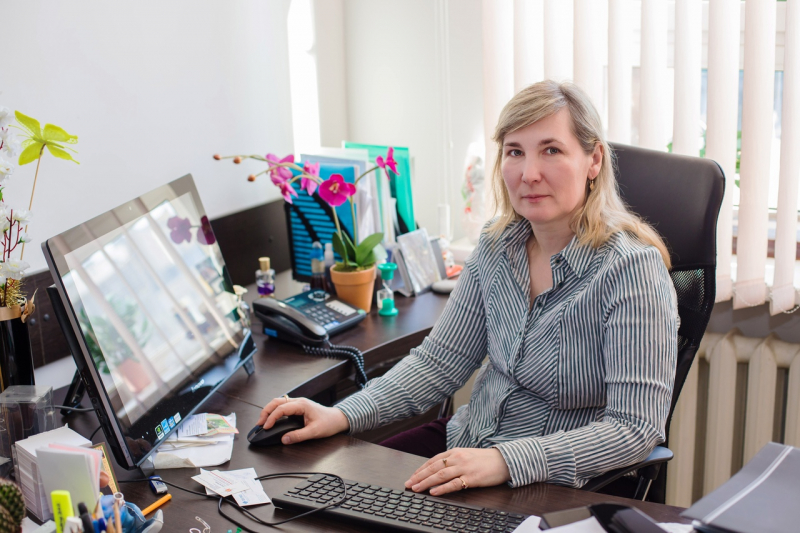
Prof. Maya Uspenskaya also adds that these programs feature active collaborations with industrial and research partners.
“Our industrial and research partners are connected to all these fields. We collaborate with production plants, laboratories, research centers, environmental agencies, and centers of expertise. Not only do our students undertake internships – they also find employment there. Our partners include Laser Center, Russkaya Eda, Baltiyskiy Bereg, Stephan Food Processing Machinery, EuroChem, Lumex, Laser Systems. This year, six of our students did their practical training at Gazprom Neft.”
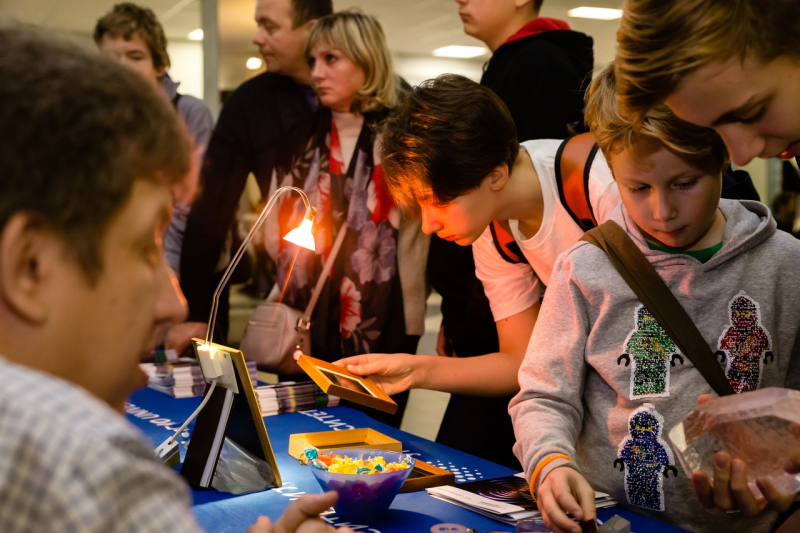
The School of Photonics comprises four faculties: Faculty of Applied Optics, Faculty of Laser Photonics and Optoelectronics, Faculty of Photonics and Optical Information, and Faculty of Physics and Engineering. Altogether, they offer 14 Master’s programs. Each of the faculties includes educational and research laboratories. They engage Master’s students in project activities as part of R&D and grant work.
“ITMO’s Faculty of Physics and Engineering conducts fundamental and applied research in the field of nanophotonics, radiophysics, and solid-state physics, as well as interdisciplinary research at the intersection of physics, chemistry, computer science, and biology,” shares Yulia Tolstykh, an engineer at the faculty. “This research covers metamaterials, optoelectronics, targeted drug delivery, topological photonics, biophotonics, optomechanics, wireless energy transfer, radiophysics and other areas. The faculty includes six international laboratories equipped with modern research infrastructure and comprising a large team of young scientists.”
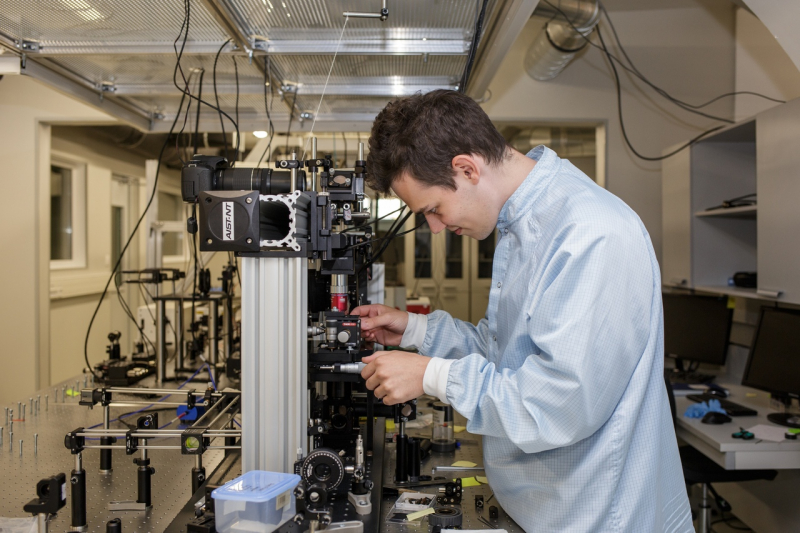
The four Master’s programs offered at the Faculty of Physics and Engineering are aimed at training scientists and creative developers, adds Yulia. Regardless of their specialization, research work is compulsory for all Master’s students – it allows them to acquire the necessary research experience. It may result in a thesis or research article in a high-ranking journal or a presentation at an international conference.
“For instance, this year the faculty’s Master’s students Polina Ivanova and Ekaterina Pukhtina co-authored an article in Nature Communications, Artem Polushkin – in Nanophotonics, Daniil Bobylev – in Journal of Physics,” notes Yulia Tolstykh. “Students often become staff members even before graduation and earn a salary in addition to their stipend. Graduates usually choose to continue their scientific career and enroll in PhD studies in Russia or abroad. They can also work in R&D: creative engineers are highly sought after by hi-tech companies such as Bosch, Samsung, Huawei.”
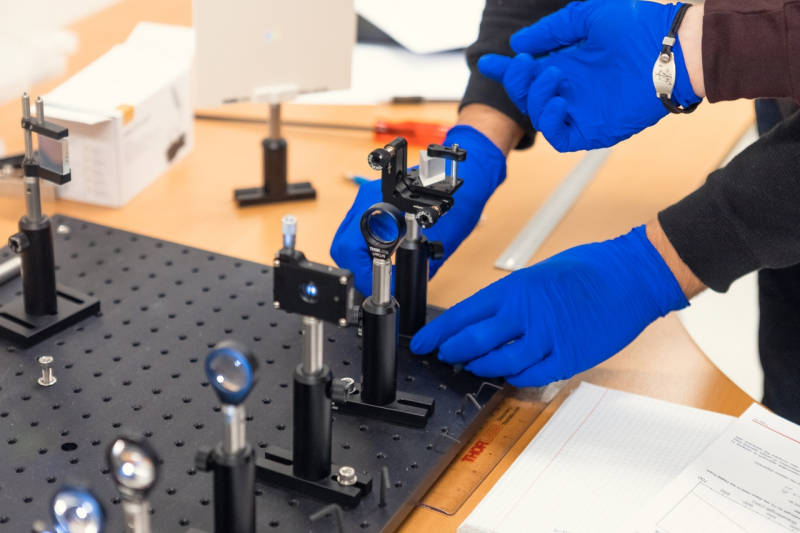
ITMO University is a leading provider of education in the fields of optics. Many employers – both in St. Petersburg and all over Russia – regularly hire university’s graduates. The School of Photonics has a large network of industrial partners, attracting their experts from among the employers to teach original courses, develop research topics, supervise thesis research and provide opportunities for students’ practical training and internships.
“In 2014, I graduated from my Master’s studies at ITMO University’s Faculty of Photonics and Optical Information, and later enrolled in PhD studies there,” shares Dmitry Vavulin, a specialist at Yandex Technologies and a School of Photonics alum. “When I was applying for Bachelor’s studies, I already knew that I wanted to pursue science and get a PhD. As of now, I work as an analyst at the Department for Geo-Targeting Advertising and Business Services at Yandex Technologies. ITMO students are in very high demand at Yandex. Here, in Moscow, I often meet people wearing ITMO University sweatshirts. I was offered a job in Moscow, but Yandex also has an office in St. Petersburg, so finding interesting vacancies there isn’t not a problem.”
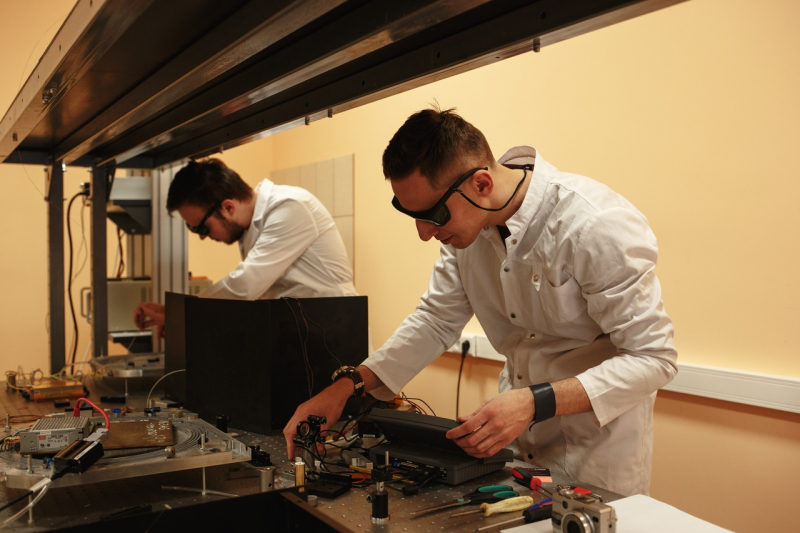
Ksenia Zavatskaya, a member of Opto-Technological Laboratory and a School of Photonics Master’s graduate, shares her story.
“In 2016, I completed my Bachelor’s degree at Peter the Great St. Petersburg Polytechnic University’s Department of Quantum Electronics. I wanted to continue my education in an adjacent and more applied field. ITMO was an obvious choice, and I decided to apply for the Master’s program in Applied Optics. I didn’t regret it one bit! Now, I work as an optical engineer at Opto-Technological Laboratory. I’m doing what I studied to do and what I liked at ITMO. As it turned out, there were no unnecessary subjects, and I still peek into my lecture notes from time to time,” says Ksenia.
Also sharing his advice with current students is another School of Photonics graduate – Vladimir Borisov, who now works at Samsung.
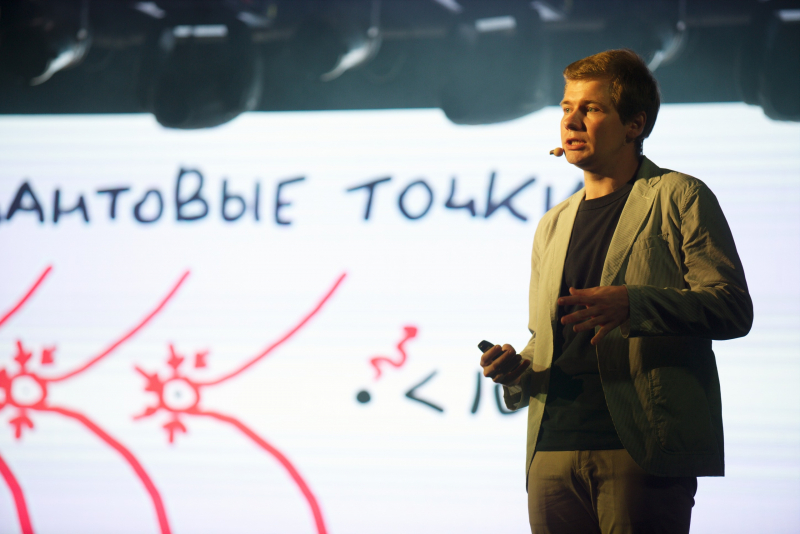
“I studied at the Faculty of Photonics and Optical Information. I graduated in 2016 with an honors degree,” shares Vladimir. “In my last semester as a Bachelor's student, I started seriously doing research at the Holographic Relaxometry Laboratory under the guidance of Prof. Andrey Veniaminov, and then carried on doing research there during my Master’s. Now, I work as a senior engineer at the Optical Inspection Laboratory of Samsung Research Center in Moscow. My advice for students is to start doing research as early on as possible. ITMO University does offer such an opportunity, you just have to make use of it.”
You can now apply for ITMO University’s Master’s studies online by creating an account on the ITMO Admissions website. The full list of programs is available here, and there is also a step-by-step guide to help you through the application process.
This article was written by Alyona Gupaisova, Daniil Belenkov, and Ksenia Kuzmina


